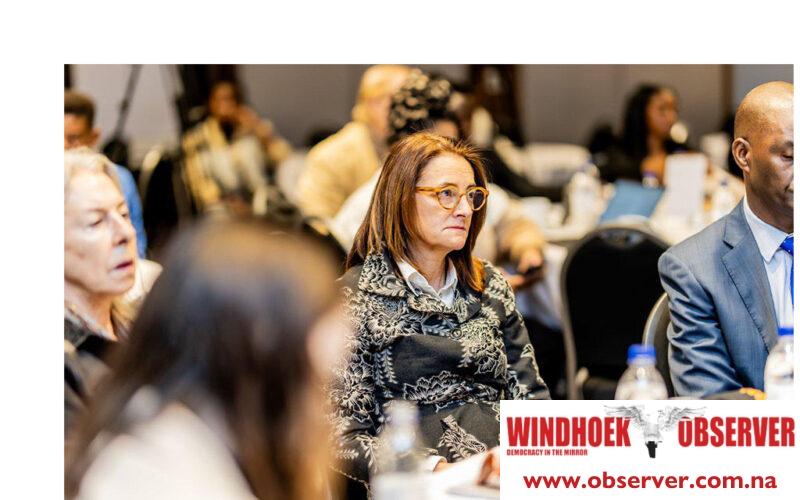Justicia Shipena
Namibia has made progress in developing its laws and aligning with international agreements on the protection of minority groups, but struggles with enforcement.
This is according to European Union Ambassador to Namibia, Ana Beatriz Martins, who spoke at a conference hosted by the NMT Media Foundation in Windhoek this week.
The conference, held under the theme ‘Amplifying San Voices in Policy Discourse’, is part of the New Narratives, New Voices project.
The three-year EU-funded initiative aims to amplify unheard voices and influence policy through community dialogue.
“Namibia has made progress, but what is missing is enforcement. The San need to feel the law working for them, not just existing on paper,” said Martins.
Namibia has adopted a National Human Rights Action Plan to promote the rights of vulnerable groups, including indigenous peoples.
The country has also ratified key international agreements that affirm indigenous rights.
These include the International Covenant on Civil and Political Rights (Article 27), the UN Declaration on the Rights of Indigenous Peoples, and the African Charter on Human and Peoples’ Rights.
However, the San people, one of the country’s indigenous communities, continue to face deep-rooted challenges.
These include historical land dispossession, discrimination, and social and economic marginalisation.
Many San communities live in poverty, without access to basic services or economic opportunities.
An Ombudsman’s report from 2023 described it as a cycle of disadvantage.
“Many stakeholders recognised that there is little that we as a nation, particularly the government, are doing about our fellow citizens, who are San people,” said Ombudsman Basilius Dyakugha.
San community leader Hans Axasi #Eichab shared personal stories of hardship and neglect.
“The San people have been treated as nobody’s, a persona non grata, but we are people,” he said.
“Our people will have gatherings in suits and closing their eyes while we are wallowing in poverty, hunger and disease,” said #Eichab.
He added that the San people’s cultural heritage has suffered as a result of development.
“You have made houses on the holy shrines of our ancestors and made roads on top of the graves of our ancestors. We will hunt you still in your fourth generation.”
San youth, both in rural and urban areas, shared the daily struggles they face. Many said they do not feel fully included as citizens.
NMT Media Foundation Director Zoë Titus said it is important that San voices are at the centre of national conversations.
She said during the foundation’s community dialogues in Tsumkwe, the San capital in the Otjozondjupa Region, it became clear that many San people feel excluded.




